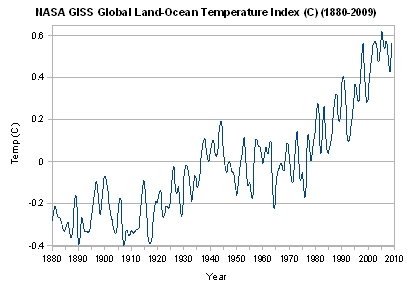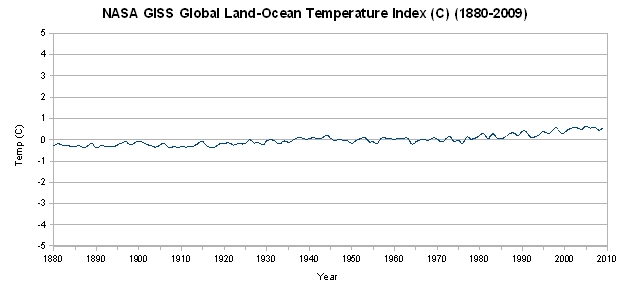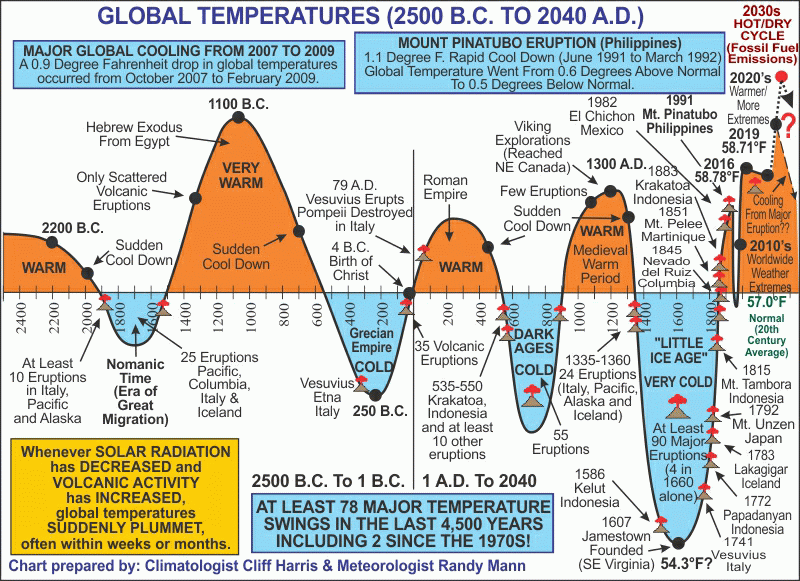Yes, my point in posting the chart was to show naturally occurring climate variabilty. However, it was not posted to trivialize potential impact on climate change to our planet. Since you seem to be somewhat informed on this subject...do you think our current scientific understanding thoroughly explains the mechanisms that cause micro and macro climate variations?
On the right hand side of the graph you get an indication of scale (low 54.3F at the nadir of the Little Ice Age and a 58.3F apex in 1998). The average appears to be taken as the average of all the data over the past 2500 years.
I think there is much that we don't understand about solar irradiance, solar winds, magnetic fields, and GRC and their affects on our climate.
I'll try and answer, but I'm not sure what's the difference between macro and micro variation.
The basic science is strictly a heat-mass transfer problem. Q in on the Earth has to equal Q out or the imbalance will drive a temperature change.
I feel the science is very settled on the output of the sun, not being the primary driver behind the observed changes in temperature over the period of time we've had satellites monitoring the sun. I've pointed very large solar arrays at the sun for the last 12 years and variance in solar irradiance is a non-factor.
Now I'm not saying that it couldn't be or hasn't been in the past just that it is not currently the driver in the temperature increase seen since the 50's.
The same goes for the albedo of the Earth, the Q out if you will. We can measure that and so I think the science shows that's a slam dunk driver for increasing global temperatures.
I think where the science is not settled or at least requires more work is how the Earth responds to the energy imbalance.
If I put a cold glass of water in the sun and measure the temperature it's going to increase.
If I put a cold glass of ice and water in the sun and measure the temperature, it will be a much more complicated temperature trend. The ice will tend to inhibit the rise in temperature as it melts but it will also cause mixing of the cold ice water and the warmer surrounding water until the ice is gone and the temperature starts to rise like the first glass.
The Earth is like the second glass only much more complicated as I'm sure you agree. Figuring out how that works is very complicated. I don't think we have a good model for predicting what the temperature will be in any given year. I do think we have the gross trends correct.
As for whether its anthropological or not. It's not hard to measure the composition of the air. It's not hard to test for what wavelengths each of those chemicals absorb and reradiate as heat.
For solar radiance as I've said we measure that on a day to day basis. It's a known quantity over the last 60 years. While magnetic fields and solar wind can transfer some energy they are still driven by the sun and we know that the largest order of magnitude of power is released in the form of light.
I'll have to check up on GRC, I'm not familiar with that.







